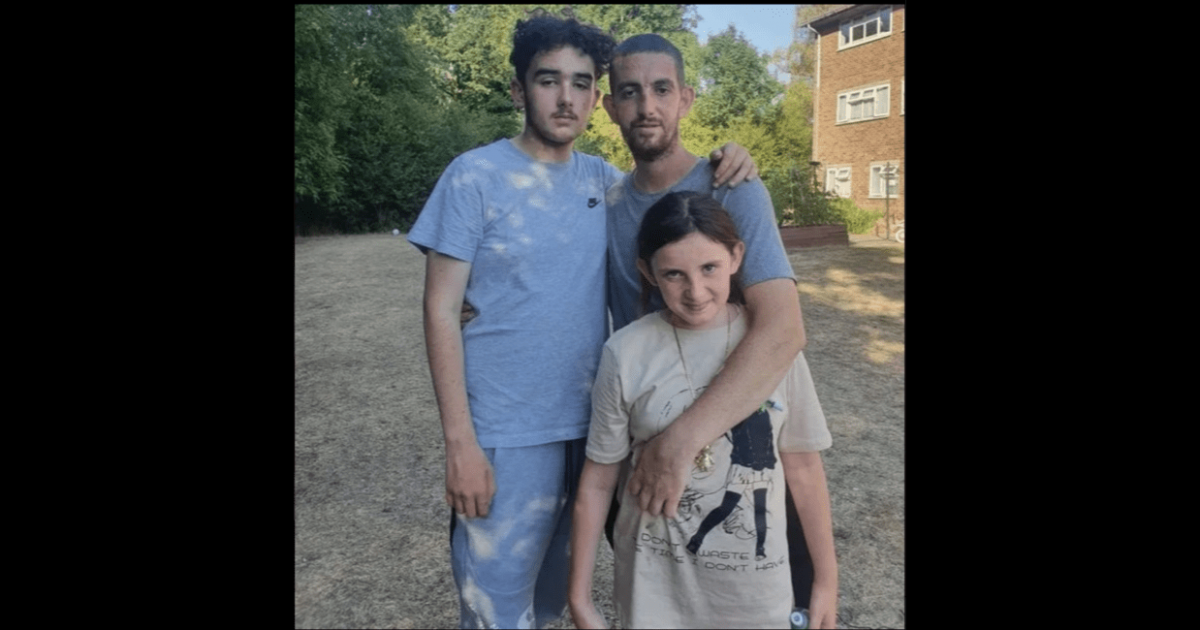Don't Stop Asking Your Doctors For Answers
- A young father-of-two’s message to everyone: Always push your doctor for more answers.
- Darren Mulqueen was diagnosed with an aggressive case of pancreatic cancer only after doctors had mistaken his agonizing back pain as a muscular issue.
- Symptoms of pancreatic cancer typically only develop once the cancer has spread to other organs.
Darren Mulqueen passed away in late September due to an aggressive case of pancreatic cancer only after doctors had mistaken his agonizing back pain as a muscular issue, according to The Sun, a UK based news organization.
Read MoreWhat Is Pancreatic Cancer?
Pancreatic cancer is a type of cancer that starts in the pancreas, which is an organ that sits behind the stomach and is about 6 inches long in adults. The pancreas head is on the right side of the abdomen, the body is behind the stomach, and the tail is on the left side of the abdomen next to the spleen.Pancreatic cancer accounts for about 3% of all cancers in the U.S. and about 7% of all cancer deaths, according to the American Cancer Society.
It is important to note there are several types of pancreatic cancer. The most common type is adenocarcinoma of the pancreas, which starts “when exocrine cells in the pancreas start to grow out of control. Most of the pancreas is made up of exocrine cells which form the exocrine glands and ducts,” said the ACS.
The other less common types include adenosquamous carcinomas, squamous cell carcinomas, signet ring cell carcinomas, undifferentiated carcinomas, and undifferentiated carcinomas with giant cells.

Photo of Darren Mulqueen courtesy of The Sun
In Mulqueen’s case, he was given just two months to live after several months of going back and forth with his doctors, arguing that his excruciating back pain was more than just a muscular problem.
The reports say the father-of-two and army member awoke one morning with horrific pain in his back and went to the doctor where they prescribe him with paracetamol, a common painkiller used to treat aches and pains. But still, months later, his pain persisted and his doctors finally suggested he get a CT scan, which revealed his diagnoses pancreatic cancer.
The reports did not say which type of pancreatic cancer Mulqueen had, however, according to the ACS about 95% of cancers of the exocrine pancreas are adenocarcinomas.
Symptoms Of Pancreatic Cancer
One of the many unfortunate parts of pancreatic cancer is that symptoms don’t typically show up until it has grown and spread outside of the pancreas.
Here is a list of some symptoms for pancreatic cancer from the ACS, but it should be of note that if you are having one or more of the symptoms it doesn’t always mean you have pancreatic cancer. In fact, many of these symptoms are more likely to be caused by other conditions, said the ACS.
- Jaundice, or the yellowing of the skin or eyes
- Belly or back pain
- Weight loss and poor appetite
- Nausea and vomiting
- Gallbladder or liver enlargement
- Blood clots
- Diabetes
Soon after Mulqueen’s diagnosis he reportedly was unable to lie on his back and was forced to sleep sitting up. He lost weight and his appetite diminished. He also was scarred and had burns covering his back due to how often he needed hot water bottles to ease the pain.
After his initial diagnosis and another scan, it took the doctors two weeks to find out the result, which showed Darren's cancer had spread to his liver. His cancer was terminal and from the time of his diagnosis in July, he’d been given two to three months to live, the reports said.
Treatment Options For Pancreatic Cancer
The treatment for pancreatic cancer will vary depending on what stage and how far it has spread in your body.
“Surgeons usually consider pancreatic cancer to be resectable if it looks like it is still just in the pancreas or doesn't extend far beyond the pancreas, and has not grown into nearby large blood vessels. A person must also be healthy enough to withstand surgery to remove the cancer, which is a major operation,” said the ACS.
Chemotherapy is typically an option before and/or after surgery depending on the size and scope of a tumor.
Mulqueen’s cancer had spread so progressively he was told chemotherapy wasn’t an option, according to reports.
“With a heavy and broken heart Darren passed away in peace,” Vassal said in a post on Mulqueen’s GoFundMe page on Sept. 29.
The main takeaways for our SurvivorNet community are to always ask your doctors questions and to push when you feel like you’re not getting the right answers.
Learn more about SurvivorNet's rigorous medical review process.


